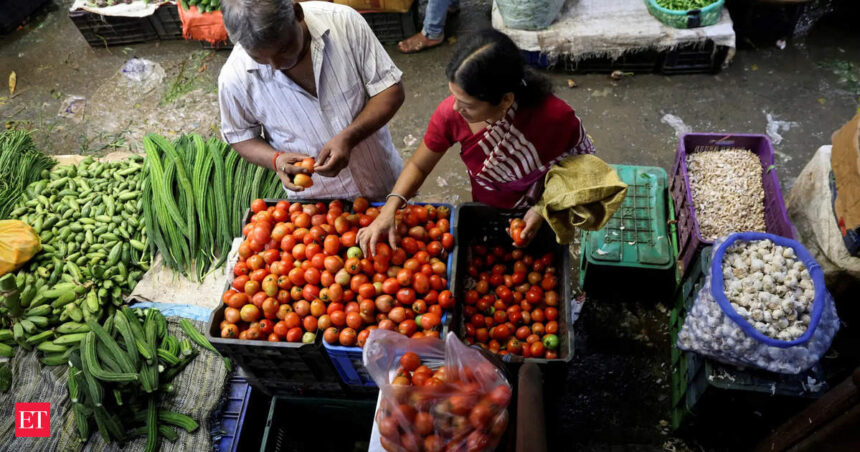India’s wholesale inflation rose to 1.84 percent in September from 1.31 percent in August, driven by a surge in food prices, according to government data released on Monday.
The Wholesale Price Index (WPI) for September 2023 was recorded at 0.26 percent, slightly lower than economists’ expectations of 1.92 percent as forecasted by Reuters.
While fuel and power prices declined by over 4 percent in September compared to 0.67 percent in the previous month, food prices saw a significant increase. Food prices, a crucial component of inflation, jumped to 9.47 percent in September from 3.26 percent in August. Vegetable prices rose by 48.7 percent, while cereal prices increased by 8.1 percent.
The inflation rate for Primary Articles of WPI surged to 6.59 percent, and manufactured products’ inflation was at 1 percent.
Food prices have always played a major role in shaping India’s inflation landscape, given that a significant portion of the population spends a large part of their income on food. The Reserve Bank of India (RBI) has highlighted the impact of food prices on overall inflation, with concerns about the rise in key vegetable prices such as onion, tomato, and potato.
The RBI, in its latest bulletin, cautioned about the volatility in food prices despite recent easing in retail prices, which could impact private consumption. The central bank’s Monetary Policy Committee (MPC) maintained its inflation forecast for the fiscal year at 4.5 percent, citing concerns about food price trajectory and geopolitical tensions affecting crude prices.
Overall, India’s inflation outlook remains influenced by food prices, weather variations, and economic stability. The MPC’s decision to shift its stance from “withdrawal of accommodation” to “neutral” reflects a balance between inflation targeting and supporting growth.










